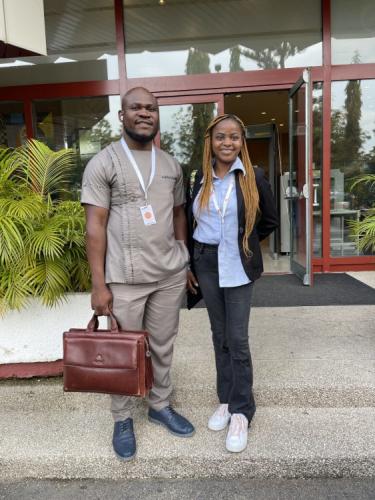
It’s 13:55 on a bright Friday afternoon at Kamuzu International Airport in what you know to be the warm heart of Africa, Malawi. I am trying to get hold of my little brother Juventus, who is picking me up at Chileka Airport later in the evening, but I am unable to access the free government Wi-Fi under the digital Malawi project, despite the network popping up on the radar. My mind immediately wanders back to the beautiful closed walls of the conference room at the Envoy Hotel in Abuja, Nigeria; figures of fellows and experts with translation headphones over their heads come alive. The conversation in the room is about how accessible the internet is in our respective jurisdictions, and our personal reflections on what entails accessibility. At the peak of the conversation, Avani Singh picks our brains on rights that align with accessibility: “right to privacy”, “freedom of assembly”, “freedom of expression and opinion”, “access to information”, echo the voices in the room, spotlighting the complexity of internet access and human rights.
Recollecting this memory floods my mind with so many lessons drawn from the deliberations, arguments, conversations and insights that packed the African School on Internet Governance (AfriSIG), which have been summarised in the output document. As I put pen to paper, I cannot help but think about the opportunities and challenges highlighted in the output document using the multi-stakeholder approach. The upcoming Internet Governance Forum (IGF) in Japan is a platform for actionable steps in addressing accessibility challenges that have widened the gap due to the economic downturn, decreasing new internet users’ ability to be online. UNESCO’s universality action concept, especially on accessibility, ought to be utilised in ensuring that access matters related to the internet are achieved in their fullness.
However, lack of awareness on cybercrimes and of comprehensive policies on cybersecurity continue to threaten access, as online scams and digital extortion, among other things, continue to plague the online community. The forum can garner financial resources, engage civil society organisations to advocate for localisation of the regional framework on cybercrime, as well as build capacity in ensuring that gaps in access are addressed.
The Internet Society in Malawi might be in its formative stages, but that hasn’t stopped me from reaching out to the leaders about my plans on awareness and sensitisation on internet governance. In the months leading up to AfriSIG, I was already engaged in conversations with Bram Fudzulani, the president of the local IGF, about implementing my takeaways in the local chapters of the Internet Society as well as the Internet Governance Forum. Thanks to the School, a planned capacity-building activity with citizen journalists in collaboration with Jessica Uiras from Namibia Media Trust and data-sharing practices from Policy are in the offing. Is there anything policy and regulation cannot solve? Wouldn’t you want to find out at the next AfriSIG?
Bridgitta Flao is a digital communications specialist with over eight years of experience in online media and digital journalism, contributing for notable online news outlets and blogs such as Kulinji.com, FYI (a Times subsidiary), Malawian Girls Rock and Malawi 24. As a creative, she has been actively engaged in utilising alternative media on the Fact Checker at Mhub and digital audio fingerprint awareness under the Copyright Society of Malawi, which both promote digital rights and internet use. Bridgitta is passionate about bridging the gender digital divide in Malawi through sharing knowledge utilising her expertise and experience in digital journalism and digital security. She is currently a pan-African youth ambassador for internet governance for this year’s cohort.
